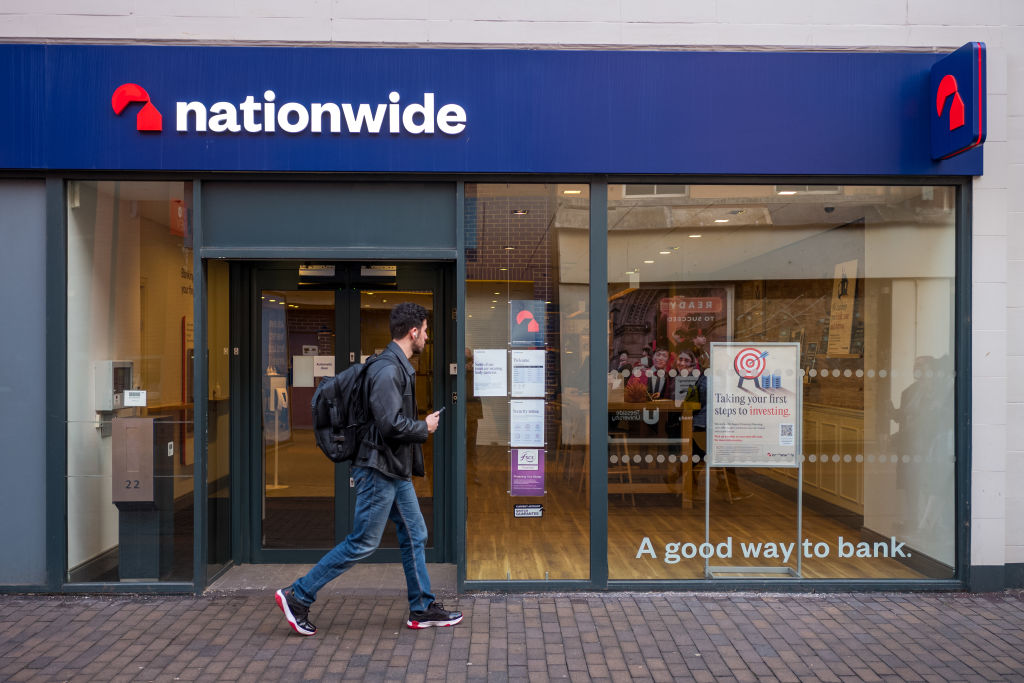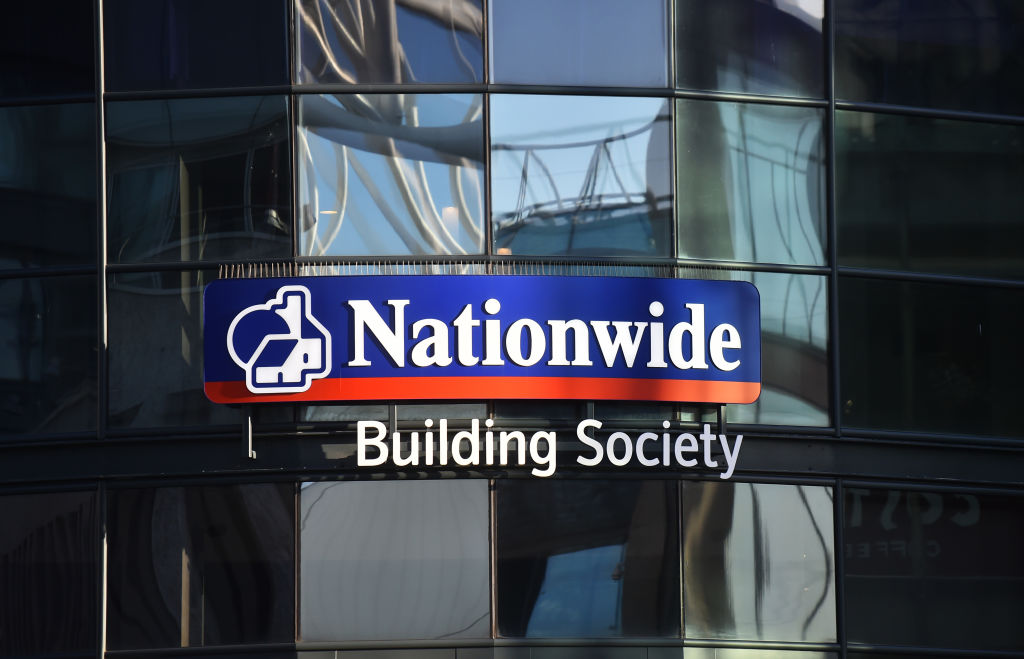How safe are building societies?
As the Dunfermline Building Society folds, Ruth Jackson considers whether more will follow.

Get the latest financial news, insights and expert analysis from our award-winning MoneyWeek team, to help you understand what really matters when it comes to your finances.
You are now subscribed
Your newsletter sign-up was successful
Want to add more newsletters?

Twice daily
MoneyWeek
Get the latest financial news, insights and expert analysis from our award-winning MoneyWeek team, to help you understand what really matters when it comes to your finances.

Four times a week
Look After My Bills
Sign up to our free money-saving newsletter, filled with the latest news and expert advice to help you find the best tips and deals for managing your bills. Start saving today!
British savers were dealt another big blow to their confidence this week when Dunfermline Building Society, Scotland's biggest mutual, became the latest financial institution to collapse. So just how safe are building societies?
Unlike banks, building societies aren't companies. They are mutual institutions where most customers are members with rights to vote and receive information in much the same way as a shareholder would in a traditional company. The other big difference is that the amount of money building societies can raise from the wholesale money markets is limited to 50% of their funds. Banks aren't subject to the same limit, which is why they were hit harder by the collapse of interbank lending in 2007.
But that doesn't mean building societies were squeaky clean. Dunfermline ran into trouble after making big commercial property loans at the height of the boom, and buying dodgy mortgage securities from US lenders Lehman Brothers and GMAC. The government used new legislation called the 'Special Resolution Regime' to split the mutual's bad debts from the rest of the business, with the government (i.e. the taxpayer) taking on the former, and Nationwide buying Dunfermline's 34 branches, its deposits and its good loans.
MoneyWeek
Subscribe to MoneyWeek today and get your first six magazine issues absolutely FREE

Sign up to Money Morning
Don't miss the latest investment and personal finances news, market analysis, plus money-saving tips with our free twice-daily newsletter
Don't miss the latest investment and personal finances news, market analysis, plus money-saving tips with our free twice-daily newsletter
There is no change for Dunfermline customers Nationwide will run it as a separate business. Also, as the two societies will be operated under separate licences, the £50,000 Financial Services Compensation Scheme (FSCS) guarantee covers each building society separately. So you could have £50,000 with each and both deposits would be covered, although this could change in September when the Financial Services Authority reviews the FSCS.
So should savers with other building societies be worried? Realistically, probably not. Nationwide itself is in no worse position as a result of the merger. In fact, it now holds 11% of the savings market and is operating a very cautious lending policy only lending roughly the same as what it holds in savings accounts. And "barring an economic disaster, no other substantial building society is expected to need rescuing", says Robert Peston on the BBC.
John Goodfellow, chairman of the Building Societies Association, has refused to rule out the notion that one or two more members may need rescue deals. But even if another society runs into trouble, most building societies are much smaller than banks, so mergers and takeovers are a much more plausible solution to any problems. Since the start of the year Nationwide has also taken over Cheshire and Derbyshire, while Scarborough and Skipton Building Society have merged. And the government has made it pretty clear through other bail-outs that it won't let a British savings institute go bust. So by all means, take your money out of the building society if you find a better rate elsewhere, but otherwise it should be safe where it is.
Get the latest financial news, insights and expert analysis from our award-winning MoneyWeek team, to help you understand what really matters when it comes to your finances.

Ruth Jackson-Kirby is a freelance personal finance journalist with 17 years’ experience, writing about everything from savings accounts and credit cards to pensions, property and pet insurance.
-
 How to navigate the inheritance tax paperwork maze in nine clear steps
How to navigate the inheritance tax paperwork maze in nine clear stepsFamilies who cope best with inheritance tax (IHT) paperwork are those who plan ahead, say experts. We look at all documents you need to gather, regardless of whether you have an IHT bill to pay.
-
 Should you get financial advice when organising care for an elderly relative?
Should you get financial advice when organising care for an elderly relative?A tiny proportion of over 45s get help planning elderly relatives’ care – but is financial advice worth the cost?
-
 My 8% Nationwide regular saver has matured - what are my options?
My 8% Nationwide regular saver has matured - what are my options?Nationwide’s popular 8% account has matured for savers. Should you stick with the building society or move to a competitor?
-
 Nationwide launches £175 bank switch offer plus extra perks - how can you get the switching bonus?
Nationwide launches £175 bank switch offer plus extra perks - how can you get the switching bonus?News Nationwide’s new bank switch offer has come alongside a revamp of its Flex current account range, with a new cashback deal and an interest-free buffer on overdrafts. Here’s how to get the £175 switching bonus.
-
 Nationwide completes Virgin Money takeover - what does it mean for customers?
Nationwide completes Virgin Money takeover - what does it mean for customers?Nationwide's acquisition of Virgin Money affects one in three people in the UK. What does it mean for branches and products?
-
 The best cash ISAs – February 2026
The best cash ISAs – February 2026Savings The best cash ISAs can help you make the most of your tax-free savings. But you may want to take advantage of top rates before they disappear
-
 Nationwide unveils 5% easy-access account
Nationwide unveils 5% easy-access accountNews Nationwide's FlexOne Saver account is available for 11 to 17-year olds. How does it compare with other children's savings accounts?
-
 Metro Bank boosts top easy access and one year fixed savings to hit best buy tables
Metro Bank boosts top easy access and one year fixed savings to hit best buy tablesMetro Bank has jumped into best buy tables offering a market-leading rate on both easy access and one year fixed savings accounts.
-
 Paragon launches best buy 5.25% easy access account
Paragon launches best buy 5.25% easy access accountAs the savings market heats up, rates on easy access accounts continue to rise with Paragon Bank now offering the table topping rate for easy access paying 5.25%. But there are some restrictions and you’ll need to be quick to get it.
-
 Coventry Building Society launches new best easy access savings account
Coventry Building Society launches new best easy access savings accountCoventry Building Society's deal tops our easy access savings account list, but could your cash be put to better use?